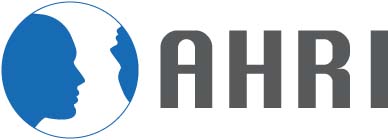AHRI: Utrecht Declaration on Academic Freedom

In the framework of its annual human rights conference, held in Utrecht, The Netherlands, on 1-3 September 2016, the Association of Human Rights Institutes (AHRI), a global network of human rights academic institutions which includes the Human Rights Centre of the University of Padova, adopted the following Declaration on Academic Freedom:
UTRECHT DECLARATION ON ACADEMIC FREEDOM
Meeting at Utrecht University for our annual conference, we, the Association of Human Rights Institutes (AHRI), deplore the actions and threats of actions of an increasing number of States to restrain and even foreclose academic freedom, in the name of security, public order, counter-terrorism, counter-crime or counter-extremism, through a variety of measures, including disciplinary actions, dismissals, criminal prosecutions, physical violence, travel restrictions and widespread intimidation of numerous scholars, teachers, students and academic institutions.
As a global network of academic human rights institutes, AHRI strongly believes that academic freedom, as defined in the Lima Declaration on Academic Freedom and Autonomy of Institutions of Higher Education, adopted by World University Service in 1988, constitutes a fundamental element of vibrant democracies and is essential to advance economic and social development and to generate sustainable peace and prosperity. This is essential with regard to both the content and method of academic research.
The intimidation and repression of scholars, teachers and students violates their individual freedoms of expression and opinion as well as their right and freedom of education, guaranteed under both universal and regional human rights instruments, including the two United Nations Covenants, the fiftieth anniversary of which is celebrated at this AHRI conference.
Moreover, such practices generate a climate of fear in which any form of creative and critical thinking is being suffocated, at great cost for current and future generations and for society as a whole. In that sense, they also go against the Sustainable Development Agenda 2030 which the international community has adopted a year ago at the United Nations, and in which quality education at all levels and scientific research and innovation occupy a central place.
We unanimously condemn these practices and express our full solidarity with our colleagues in their struggles for knowledge, truth, peace, human rights, freedom and tolerance in their countries.
We invite the international community and authorities at all levels to take a clear stand against these practices, to assist scholars, teachers and students at risk, and we urge governments to respect scrupulously their international and constitutional obligations.
Utrecht, 3 September 2016

